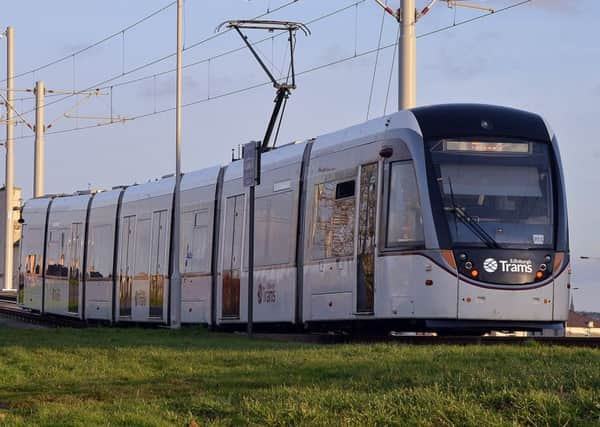Councillor '˜barred' from trams meeting because of his opposition to initiative


And SNP councillors who opposed the move to build a tram network became the “butt of jokes” amid claims anything they were told would simply end up on the front of the Evening News.
Former SNP group leader Steve Cardownie gave evidence as the long-awaited inquiry into why the trams were delivered late, over budget and on a truncated route yesterday entered its fourth week.
Advertisement
Hide AdAdvertisement
Hide AdMr Cardownie, who first became a councillor in 1988, was in the city’s Labour group when the idea for trams was first introduced.
In a written submission, Mr Cardownie – who moved to the SNP in 2005 – said he had been “starved” of information when it came to the first business case, which he voted against.
He told the inquiry his party became the “butt” of jokes amid claims anything they were told would end up in the papers as a result of their opposition to the work.
“People were reluctant to engage us or to provide us with information that they felt might be used against their own interests,” he said.
Advertisement
Hide AdAdvertisement
Hide Ad“I certainly know there were meetings held in the council with officials and elected members where I was excluded, because I was not a supporter of the tram project.”
Questioned about the meetings by inquiry counsel Jonathan Lake, Mr Cardownie said they took place between 2007 to 2012, when the Lib Dems and SNP were in coalition.
He said they seemed “informal” and added: “I wasn’t informed of them.
“But I could see members of TIE, chief executive, transport spokesperson, coming out of the meeting in the City Chambers that I knew nothing about.”
Advertisement
Hide AdAdvertisement
Hide AdMr Cardownie said councillors had difficulty accessing information on a range of matters including utilities work, tram stops and the use of a contingency fund.
The inquiry, chaired by Lord Hardie, also heard evidence in relation to the role played by four councillors on the Tram Project Board.
Mr Cardownie said he did not expect its four council members to report everything back but questioned why “none” had said anything when it became public knowledge that “things were not going according to plan”.
Also giving evidence at the inquiry was former TIE chief executive Michael Howell, who headed up the arm’s length firm from its inception in 2002 until his resignation in 2006.
Advertisement
Hide AdAdvertisement
Hide AdMr Howell explained he had been “surprised” by some of the people chosen to work for TIE due to what he regarded as a lack of experience when it came to civil engineering.
He said this was one of the reasons he recommended that TIE create the Tram Project Board, in order to bring in people more familiar with the practical aspects involved on such a project. Mr Howell said the presence of councillors such as Andrew Burns on the board helped with access to more senior politicians.
“I suppose what we’re talking about here [is] what the relationship was like between the political part of the council, particularly the leader, and TIE, because I never really saw Donald Anderson.
“He was very remote indeed and yet he wielded a lot of influence. The only way I could influence him was by working closely with Andrew Burns.”
Advertisement
Hide AdAdvertisement
Hide AdMr Howell also spoke of clashes with then Lothian Buses chief executive Neil Renilson, saying it became “impossible” to maintain a friendly and trusting relationship.
He said: “It was clear very early on that, for whatever reason, Neil wanted to be in charge of everything to do with the tram, even though of course he wasn’t a civil engineer, he didn’t really know anything about building a tram system.
“It was something that created a lot of energy and time and attention on the part of the TIE board and me and my colleagues, because of various filibusters from the director of Lothian Buses.”
The inquiry also heard from ex-Transport Scotland official Ainslie McLaughlin, who will continue his evidence today.